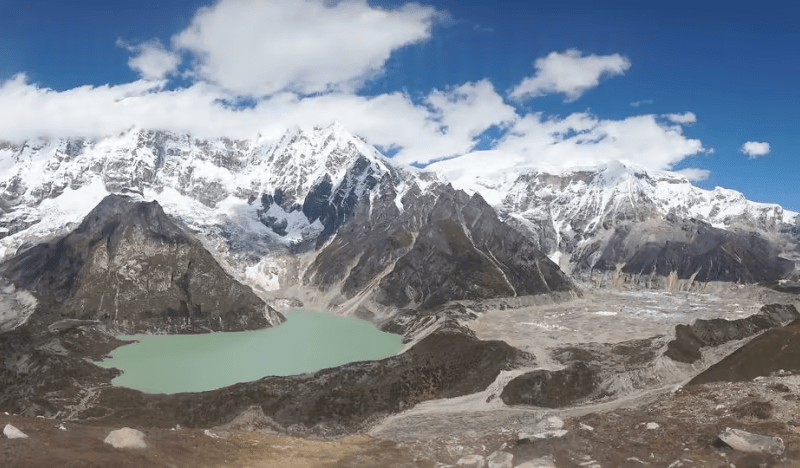Bhutan stands at a critical crossroads in its development journey, as rising climate threats loom large over its economy and communities. A new report released by the World Bank warns that unless urgent steps are taken to adapt to a warming and increasingly erratic climate, Bhutan could suffer severe economic setbacks by mid-century.
The Bhutan Country Climate and Development Report (CCDR), launched yesterday, offers a sobering assessment of the risks posed by floods, landslides, extreme heat, and shifting weather patterns. The nation’s economic backbone—hydropower, agriculture, and tourism—is already showing signs of strain under these mounting pressures.
According to the report, if no adaptation measures are implemented, Bhutan could lose a significant share of its GDP by 2050. However, early action, including investments in adaptive infrastructure and social protections, could reduce these losses by over 40%.
“Bhutan is uniquely positioned to lead the way in climate-smart development,” said Cecile Fruman, Acting Country Director for the World Bank. “Its carbon-negative status and natural endowments provide a strong foundation—but this must be backed by bold, forward-looking policies.”
Key Sectors Under Threat
Hydropower, which makes up about a third of Bhutan’s exports, is increasingly vulnerable. Changing rainfall patterns and glacial melt are affecting water flow, jeopardizing both energy generation and dam safety. The CCDR calls for enhanced, risk-informed planning in this sector.
Agriculture, which employs nearly half the population, is grappling with declining yields due to erratic weather and rising pest infestations. The report notes that despite the urgency, adoption of climate-resilient farming techniques remains low, and investments in irrigation and smart inputs are limited.
Tourism, a vital revenue earner, faces challenges from damaged infrastructure, unpredictable weather, and loss of biodiversity. Without adaptation strategies, Bhutan’s high-value, low-volume tourism model could be undermined.
Cities and Vulnerable Communities at Risk
Urban areas are also facing escalating climate threats. Around 65% of Bhutan’s population lives in areas exposed to at least one natural hazard. Projections indicate that cities will experience more intense rainfall, heatwaves, and longer dry spells by 2050.
The report highlights the need for climate-resilient urban planning, including nature-based solutions like watershed restoration and improved building codes. Districts such as Zhemgang and Mongar are identified as particularly vulnerable due to their combined exposure to poverty and climate-related hazards.
Flash floods and landslides are emerging as national challenges, threatening infrastructure and disrupting livelihoods across all dzongkhags.
A Blueprint for Climate-Smart Growth
Despite the grim projections, the CCDR also outlines a hopeful path forward. It emphasizes that climate adaptation can serve as a catalyst for sustainable, inclusive growth.
“By embedding sustainability into tourism, forestry, and agriculture, Bhutan can unlock new job opportunities and attract investment,” said Imad N. Fakhoury, Regional Director for South Asia at the International Finance Corporation.
The report encourages expansion of climate-smart agriculture, sustainable forestry, ecotourism, and green industries—all of which offer potential for job creation, particularly among youth and rural communities. Initiatives such as forest-based value chains and nature tourism can simultaneously generate income and protect biodiversity.
In urban development, the report spotlights the proposed Gelephu Mindfulness City as a model for low-carbon, climate-resilient growth that aligns economic aspirations with ecological values.
Financing the Transition
Transitioning to a resilient economy will require financing that goes beyond the scope of Bhutan’s current public budget. The report calls for Bhutan to tap into global climate finance, carbon markets, and private sector partnerships. Domestic reforms such as green taxation and climate-sensitive budgeting are also advised.
“Our analysis makes it clear: climate risks are significant, but so are the opportunities,” said Rangeet Ghosh, World Bank Senior Economist and Lead Author of the report. “To safeguard development gains, Bhutan must prioritize adaptation and diversify its economy.”
Strengthening data systems, expanding social protection, and engaging communities—particularly indigenous and vulnerable groups—will be critical to effective climate action, the report emphasizes.
As climate change intensifies, Bhutan’s challenge is clear: act decisively now, or risk undermining decades of progress. But the CCDR leaves no doubt—with timely action, Bhutan can not only adapt but thrive, emerging as a global example of climate-smart, inclusive development.







